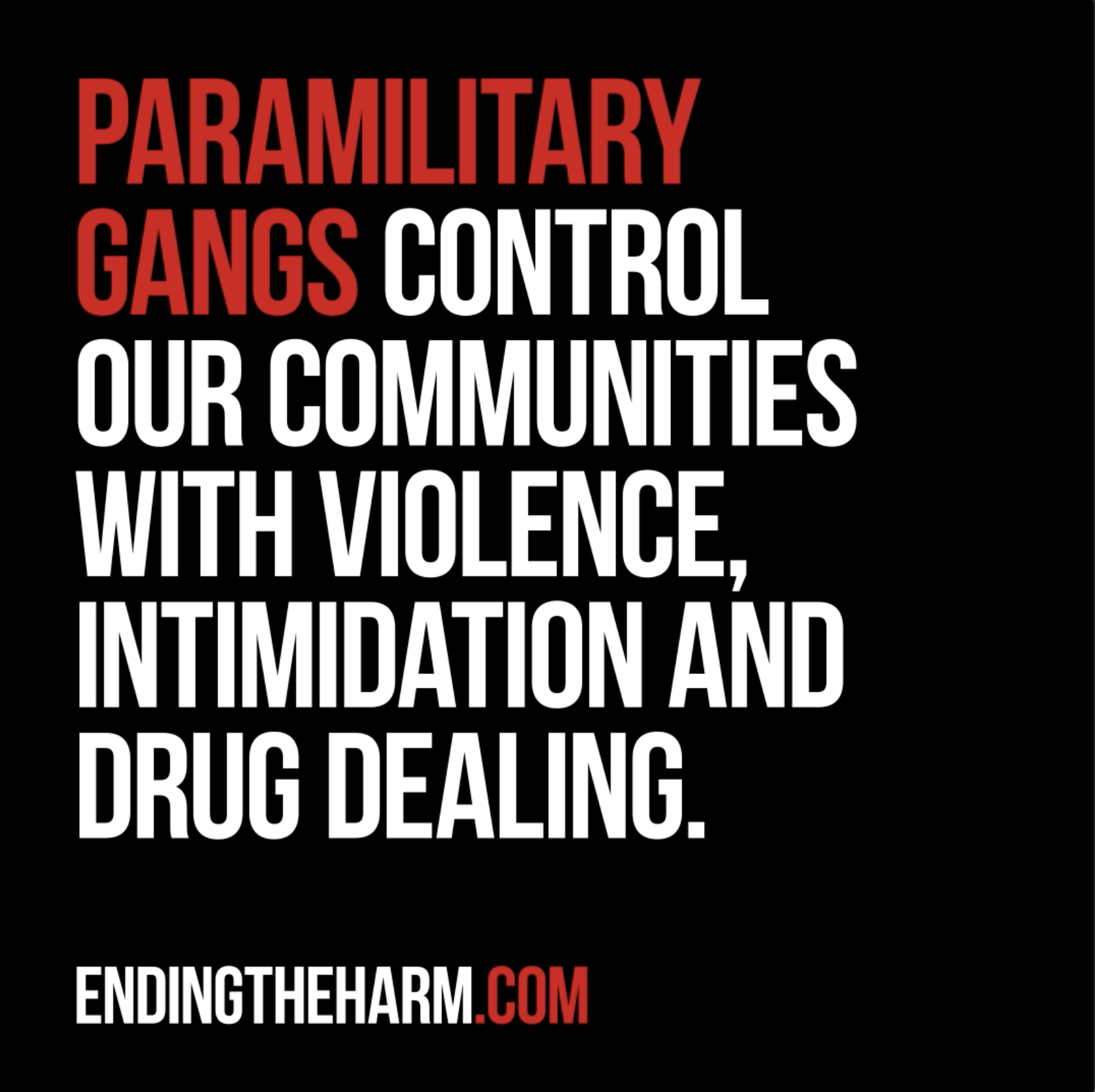“We must shine a light on what is not normal but has been normalised if we are to expose the true nature of paramilitary harm and ensure victims get support.”
This was the message from Justice Minister Naomi Long at the launch of the new ‘Ending the Harm’ public awareness campaign which shows how people are being exploited by paramilitary gangs in often ‘hidden’ harms.
The NI Executive’s Programme on Paramilitarism and Organised Crime (EPPOC) campaign highlights issues including child criminal exploitation, grooming, violence extortion of local businesses and violence against women and girls. From Monday 7 October, posters will be displayed across a wide range of outdoor advertising sites as well as featuring online and on social media.
Speaking at today’s launch, Justice Minister Naomi Long said: “The hidden harms highlighted in this new campaign are examples of those which are perpetrated daily by paramilitary criminals. They are compounded by drug trafficking, intimidation, coercive control of communities, money lending, physical and mental abuse, and undermining the law and criminal justice structures. The result is a complex web of control that extends deep into communities.
“It is important therefore that we challenge the true nature of paramilitary influence so it cannot hide in plain sight and it is no longer accepted as normal or inevitable. We want to empower our communities and encourage victims to come forward and get support.”
The Minister added: “Political and community leaders must show courage and leadership on these issues – the courage to speak openly about uncomfortable truths, the courage to challenge long-standing power structures, and the courage to deliver what has been agreed in the Fresh Start Agreement. We all have a role to play, and I hope that this campaign will play a part in supporting this action.”
The Political Advisory Group to EPPOC, comprised of representatives from Executive parties Sinn Fein, DUP, Alliance, and UUP, has welcomed this new phase of the campaign, issuing the following collective statement:
“We continue to support the vital work aimed at supporting communities and individuals vulnerable to paramilitary harm. The Executive Programme on Paramilitarism and Organised Crime (EPPOC), which was recently extended until 2027, plays a critical role in coordinating, understanding and raising awareness of this issue. This is evident in the latest phase of the Ending the Harm campaign being launched today which draws on EPPOC’s knowledge of the often hidden harms inflicted on communities by violent groups using paramilitary names. Collectively, we believe that it is important to call this criminality out for what it is and facilitate a whole-of-society conversation about that activity, its consequences and causes. This will better enable all of us to ensure that the focus on addressing this harm is best placed, now and in the future.”
Police Service of Northern Ireland Assistant Chief Constable Davy Beck said: “There is absolutely no place in our society for paramilitary groups and their criminal activities, whether money lending, drug dealing or extortion. These groups use a regime of intimidation, fear and violence to exercise their control over, and take advantage of, innocent people.
“Victims are too afraid to come forward and speak up, and we’re left with a worrying cycle of silence, and this is the very issue that we’re trying to address along with our partners. Our communities don’t want to, and don’t deserve to, live in fear of threats of violence. This is not acceptable in any shape or form, and it’s time to say, ‘enough is enough’.
“Police, along with our partners in the Paramilitary Crime Task Force, continue to carry out extensive investigations, search operations, and arrests for all types of criminality linked to paramilitary groups. While we will continue to relentlessly pursue all involved in illegal activity, we cannot tackle this issue alone. I’m appealing to all victims, as well as those who have information, to come forward and speak to us.
“We completely understand that fear can create huge barriers to reporting but we are here to listen, to help and to keep you safe.”



